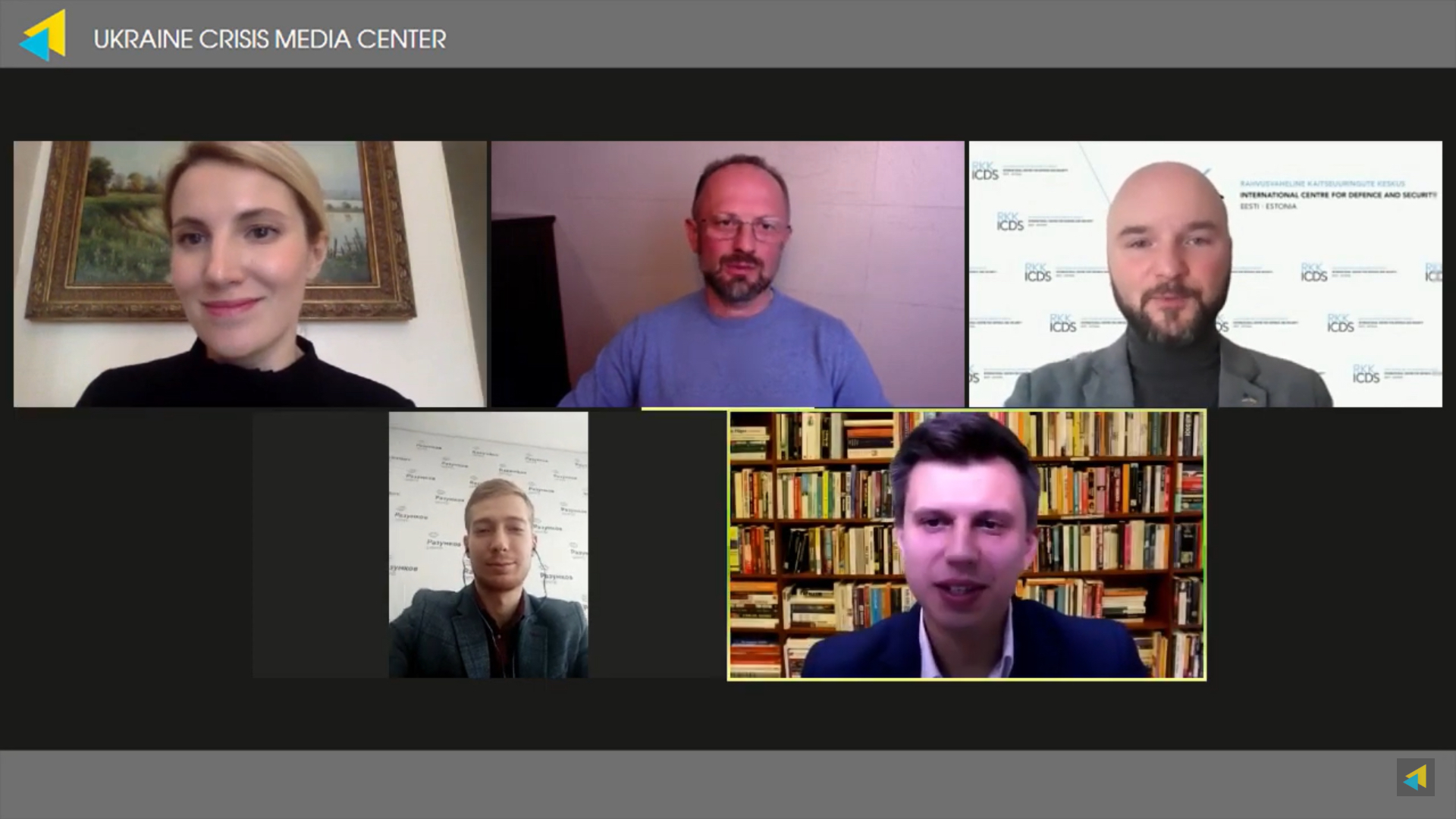 On June 5, experts from Ukraine and Estonia discussed security challenges for Ukraine and their consequences, as well as foreign experience, in particular, of the Baltic States in formulating a national resilience strategy for Ukraine.
On June 5, experts from Ukraine and Estonia discussed security challenges for Ukraine and their consequences, as well as foreign experience, in particular, of the Baltic States in formulating a national resilience strategy for Ukraine.
Invited speakers:
▪ Roman Bezsmertnyi, former Representative of Ukraine to the political subgroup of the Trilateral Contact Group for the Peaceful Settlement of the Situation in the Donetsk and Luhansk Regions
▪ Dmitri Teperik, Chief Executive, International Centre for Defence and Security (ICDS), #Estonia
▪ Oleksii Rozumnyi, Expert, Political and Legal Programmes of the Razumkov Centre, Ukraine
▪ Mykola Nazarov, Head, Research Centre for Regional Security, Ukraine
Moderator: Liubov Tsybulska - Head, #Hybrid #Warfare Analytical Group, Ukrainian Crisis Media Centre
Initial questions for discussion:
▪ War, crime, economy, #pandemic: what is perceived as one of the acutest challenges to Ukraine today?
▪ #Disinformation campaigns amid the COVID-19: how does it influence the Ukrainian society?
▪ Citizens and the #government: a traditional betrayal or a triumph of trust?
▪ Secure #reintegration of #Donbas: what has to be done?